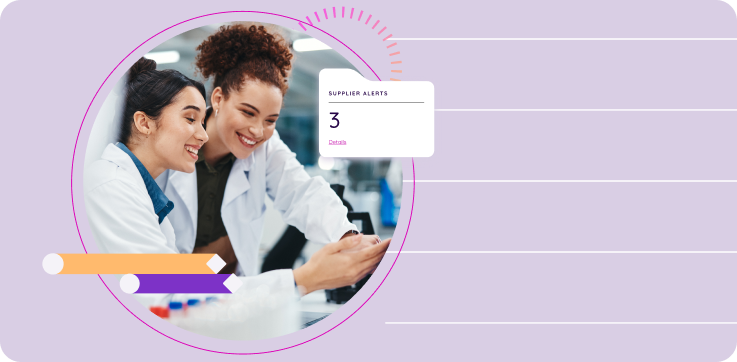
In the pharmaceutical industry, the importance of regulatory compliance extends beyond fulfilling legal obligations. It ensures the safety, efficacy, and high quality of drug products. Compliance can be streamlined with the help of an electronic quality management system (eQMS) that incorporates regulatory standards into every operational aspect of a pharmaceutical organization.
In this blog post, we’ll explore how quality management is essential for meeting regulatory standards and maintaining the efficacy, safety and high quality of pharmaceutical products.
Understanding the Regulatory Framework
For a pharmaceutical company, the journey to compliance begins with a comprehensive understanding of the regulatory framework. Governing bodies such as the U.S. Food and Drug Administration (FDA) and the European Medicines Agency (EMA) set standards encompassing every stage of pharmaceutical operations, including R&D, manufacturing, labeling, distribution, and post-market surveillance. These standards are not static; they must evolve to adapt to new medical discoveries and technological advancements.
Notably, the main standard for ensuring pharmaceutical compliance is the current good manufacturing practice (CGMP) regulation. The FDA ensures that drug manufacturing processes align with these CGMP objectives.
The eQMS is integral to incorporating these regulatory requirements into an organization’s daily operations. It ensures that every stage of drug development and distribution is compliant with current regulations, helping maintain product integrity and safeguard patient health.
The Important Elements of an eQMS for Pharmaceutical Compliance
The eQMS incorporates several automated and integrated processes that play a key role in meeting regulatory compliance and product quality:
- Document Management: The document management process is the backbone of compliance, ensuring that every procedure, change and decision is documented. This not only supports traceability and accountability but also helps maintain compliance with standards like 21 CFR Part 11, which is crucial during regulatory audits.
- Risk Management: Great risk management involves proactively identifying and mitigating risks that could impact compliance and product quality. This process includes thorough risk assessments that consider factors like process variability, product complexity, and the potential for regulatory changes. Addressing these risks early helps prevent quality breaches and noncompliance.
- Supplier Quality Management: Given that the quality of raw materials directly affects the final product, supplier quality management is critical. It involves overseeing every element of production and life cycle, automating the workflow, data, and records related to supplier audits and gaining complete visibility into supplier tasks to ensure they continue to adhere to quality standards.
- Training Management: An eQMS ensures that all employees are adequately trained and kept up-to-date with any regulatory and procedural changes. Continuous training helps employees perform their roles effectively and recognize potential compliance issues, contributing to the overall integrity of the eQMS.
Implementing Proactive Compliance Strategies
Maintaining compliance involves more than adhering to established protocols. It also requires taking a proactive approach. Regular audits are critical in this regard, helping identify and prevent deviations from compliance standards. These audits, coupled with meticulous documentation, provide a clear trail of compliance and facilitate the need for corrective actions when necessary.

An Integrated Approach to Quality and Compliance
Quality management and regulatory compliance have a symbiotic relationship within not only the pharmaceutical industry but also the life sciences as a whole. One simply doesn’t work without the other.
The eQMS does more than streamline quality and compliance. It embeds regulatory requirements deeply into a company’s operational framework, enhancing product quality and ensuring they meet the highest standards of safety and efficacy. This integrated approach to quality management helps pharmaceutical organizations meet regulatory demands and supports the overarching goal of delivering safe and effective products to patients.
Not sure what to look for in an eQMS solution? Download our step-by-step guide to choosing the best eQMS for your organization.


